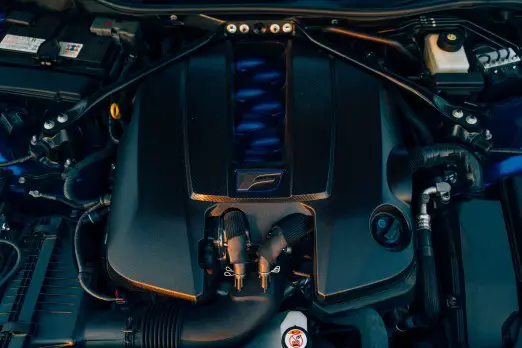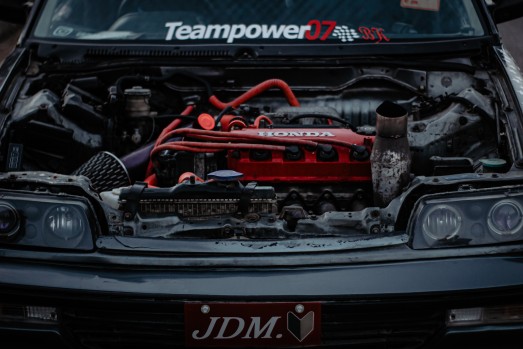Mercedes-Benz has always been a leader in performance and innovation in the automobile industry, and its diesel engines are fundamental to this heritage. The most powerful diesel powerhouses produced by Mercedes-Benz are examined in this article together with their development, performance indicators, and drivers’ actual driving experiences.
We will explore the technical wonders that have molded the brand’s history and continue to define the pinnacle of diesel technology, starting with the famous workhorse, the OM617, and going all the way up to the state-of-the-art OM656.
We hope to give a thorough review of what makes these engines unique as we go over the power, reliability, and environmental factors, highlighting their continuing appeal in the constantly changing field of automobile engineering.
Importance of Diesel Engines in the Automotive Industry:
Diesel engines, which provide a special combination of power, efficiency, and lifespan, have significantly shaped the automobile industry. Their significance comes from their capacity to deliver significant torque and fuel economy, which makes them especially suitable for heavy-duty applications like industrial vehicles, buses, and trucks. Long-haul transportation demands have been met by diesel engines, whose fuel efficiency and durability lower operating costs. Additionally, diesel engines are a desirable option for business fleets due to their reputation for reliable operation over lengthy periods.

Key Criteria for Evaluating Diesel Engines:
Several critical factors are essential for assessing diesel engines to ascertain their overall efficiency, dependability, and performance. These standards function as a means of evaluating the performance and qualities of a diesel engine:
Power Output:
- Horsepower and Torque: The engine’s power output, expressed in horsepower (hp) and torque (lb.-ft), indicates how well it can operate in certain scenarios. Greater torque is necessary for heavy-duty tasks like hauling, while higher horsepower helps with acceleration.
Fuel Efficiency:
- Miles per Gallon (MPG): Cost-effectiveness and environmental sustainability both depend heavily on fuel economy. The capacity of a diesel engine to extract the most energy from gasoline impacts both its overall efficiency and how far it can go on a single tank.
Reliability and Durability:
- Longevity: Long lifespans reduce the need for frequent repairs or replacements in a dependable diesel engine. For applications like commercial transportation that need to run continuously for prolonged periods, durability is particularly important.
Emissions Control:
- Compliance with Emission Standards: For legal compliance and environmental sustainability, emission criteria must be met or exceeded. Cleaner air quality is a result of diesel engines fitted with innovative emission control technology like selective catalytic reduction (SCR).
Technological Innovations:
- Common Rail Injection: Common rail injection and other advanced fuel injection systems increase fuel atomization and combustion efficiency, which improves performance and lowers emissions.
- Turbocharging: By pumping more air into the combustion chamber, turbochargers improve engine efficiency and power production without appreciably increasing fuel consumption.
Adaptability to Varied Applications:
- Versatility: A crucial factor is a diesel engine’s capacity to operate at peak efficiency in a variety of settings, including industrial machines and passenger cars. The engine’s versatility guarantees that it can satisfy a wide range of demands from the automotive sector.
Noise and Vibration Control:
- NVH (Noise, Vibration, and Harshness): Reducing vibration and noise improves the driving experience. To lower NVH levels, well-designed diesel engines use technology like balanced crankshafts and soundproofing materials.
Ease of Maintenance:
- Serviceability: A diesel engine’s overall attractiveness is influenced by factors such as simple maintenance methods, easy access to essential components, and a strong service network. Higher operating efficiency is ensured with less downtime for maintenance.

Top Diesel Engines from Mercedes-Benz:
Mercedes-Benz has a long history of manufacturing superior diesel engines, all of which have helped to build the brand’s reputation for efficiency, dependability, and creativity. The following are a few of Mercedes-Benz’s best diesel engines:
OM617: The Legendary Workhorse:
The OM617 diesel engine is well-known for its sturdy construction and remarkable endurance. It was first available in the late 1970s and powered several Mercedes-Benz vehicles, notably the renowned W123. Because of its dependability and toughness, it has become a classic in the automobile industry.
OM648: The V6 Powerhouse
A V6 diesel engine that combines efficiency and power is the OM648. This engine offers good fuel economy and powerful performance thanks to its variable geometry turbocharger and common rail injection. Models like the G-Class and E-Class were powered by it.
OM642: The Modern V6 Diesel
Mercedes-Benz’s dedication to contemporary diesel technology is shown in OM642. It finds a mix between power and environmental sustainability with its 3.0-liter V6 and common rail direct injection architecture. It has been used in many models, including the ML-Class and E-Class.
OM656: Embracing the Future
A modern diesel engine that epitomizes Mercedes-Benz’s dedication to technical innovation is the OM656. It uses innovative technology including stepped-bowl combustion, which produces lower pollutants and more efficiency. Models like the S-Class and GLE-Class are powered by this engine.
Real-World Performance:
When assessing diesel engines, real-world performance is crucial as it has an immediate effect on the driving pleasure, fuel economy, and general happiness of car owners. Mercedes-Benz diesel engines have a reputation for excellence because they have continuously shown excellent real-world performance in a variety of settings.
City Driving:
Mercedes-Benz diesel engines are excellent for city driving since they frequently provide low-end torque that is responsive. The instantaneous power delivery facilitates easy maneuvering through urban traffic and improves acceleration from stoplights.
Highway Cruising:
High torque and fuel economy work especially well together on the highway. Long-distance travel is comfortable and cost-effective thanks to the seamless and smooth cruising experience offered by Mercedes-Benz diesel engines.
Towing and Hauling:
Mercedes-Benz diesel engines perform exceptionally well in situations requiring towing or hauling, such as with SUVs or trucks. Their strong torque qualities make them a desirable option for people who value utility since they guarantee enough power to haul trailers or move large loads.
Fuel Efficiency:
The remarkable fuel economy of Mercedes-Benz diesel engines is one of their distinguishing qualities. The engines have a longer range between refueling stops because they are built to extract the most energy possible from each fuel drop. This is advantageous for drivers monetarily as well as environmentally, as awareness of the environment is expanding.
Reliability and Longevity:
Mercedes-Benz diesel engine owners frequently attest to their cars’ exceptional durability and dependability. Because many of the engines can attain long mileage without seeing appreciable performance deterioration, they are built to last in real-world applications.
Versatility Across Models:
Mercedes-Benz diesel engines are versatile enough to be found in a variety of car types, from SUVs to premium sedans. The engines provide constant and dependable performance regardless of the vehicle design, whether it is the roomy GLE-Class or the agile C-Class.
User Testimonials and Reviews:
Drivers’ firsthand accounts offer important insights into the actual performance of Mercedes-Benz diesel engines. Positive reviews frequently emphasize how power, efficiency, and dependability blend seamlessly, reiterating the brand’s dedication to producing engines that excel in typical circumstances.
Frequently Asked Questions (FAQs):
Are diesel Mercedes engines dependable?
Certainly. Diesel engines made by Mercedes-Benz are renowned for their outstanding reliability. These engines have a reputation for having durable designs and dependable performance across a range of driving circumstances.
What is the most dependable engine for a Mercedes-Benz?
One of the most trustworthy Mercedes-Benz engines is frequently regarded as the OM617. The OM617 is a popular option for owners and enthusiasts because of its strong construction and legendary endurance. It has also gained a reputation for longevity.
Which diesel-powered vehicle is the most dependable?
Many people consider the Mercedes-Benz E-Class with the OM617 diesel engine to be among the most dependable diesel-powered automobiles. The OM617 engine is renowned for its exceptional dependability and longevity, which adds to the vehicle’s overall dependability.
Who is the manufacturer of the Mercedes 3.0 diesel engine?
The parent corporation of the Mercedes-Benz brand, Daimler AG, produces the 3.0-liter diesel engine used by Mercedes-Benz.
Conclusion:
To sum up, Mercedes-Benz’s diesel engines are proof of the company’s steadfast dedication to quality, innovation, and environmental consciousness. Every engine in the lineup, from the OM617’s enduring toughness to the OM656’s innovative efficiency, symbolizes a different period in the brand’s illustrious history of technical feats. The brand’s dedication to sustainability is demonstrated by its proactive response to environmental concerns, which is demonstrated by the incorporation of innovative emissions control systems. Mercedes-Benz keeps up with the changing needs of the automobile industry by investigating other energy sources and upholding the durability of diesel technology.

